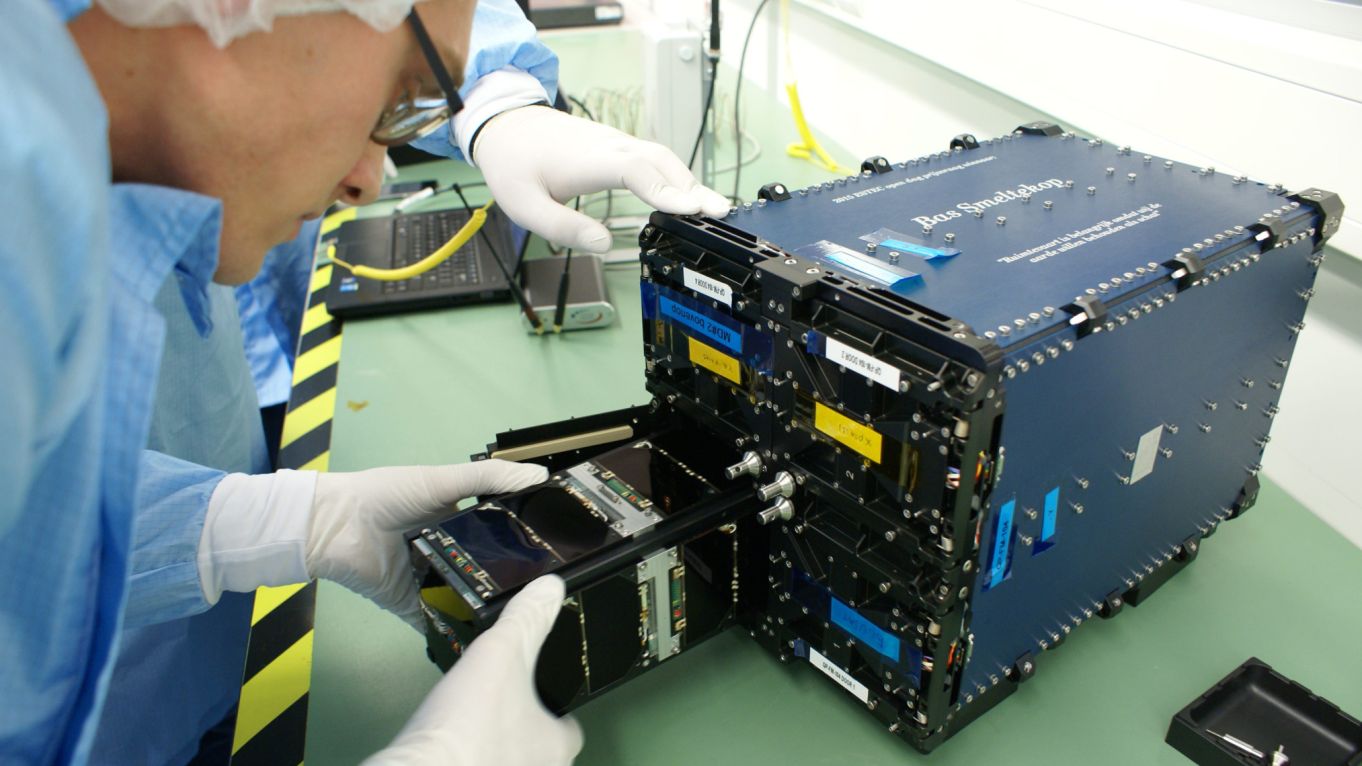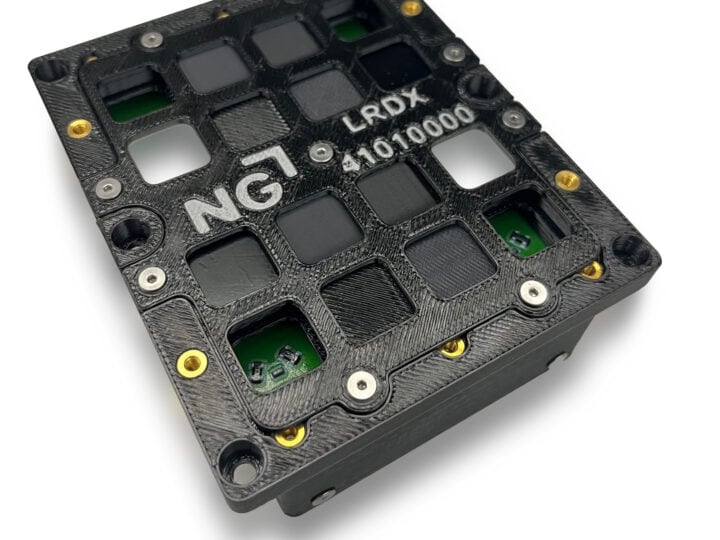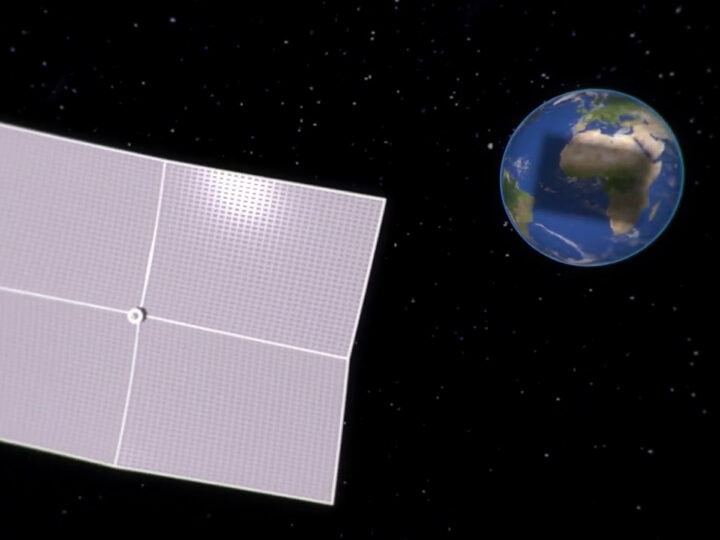India’s Polar Satellite Launch Vehicle (PSLV) rocket launched with a record payload of 104 satellites today, among them two Israeli-built nanosatellites.
The super tiny blue-and-white satellites will be used for research.
The BGUSAT, Israeli academia’s first nanosatellite, measures just 10x10x30 centimeters (a little bit larger than a milk carton) and weighs five kilograms. It is outfitted with innovative new cameras that can detect climate phenomena and a guidance system that lets the operators choose the areas to shoot and research through a dedicated ground station at BGU.
BGUSAT is the result of a five year joint project between BGU, Israel Aerospace Industries and the Ministry of Science, Technology and Space. It will conduct Ben-Gurion University of the Negev scientific missions.
“Nanosatellites enable space engineering and space research at costs that are affordable for academia. The reduced costs allow academia to assume a much more active role in the field taking advantage of the innovation and initiative of researchers and students,” said Prof. Dan Blumberg, BGU’s VP and Dean for R&D.
The second civilian nanosatellite on the Indian payload belongs to SpacePharma and is designed for medical experiments. The 4.5-kilogram micro-gravity nanosatellite will examine the effect of weightlessness on materials.
Fighting for Israel's truth
We cover what makes life in Israel so special — it's people. A non-profit organization, ISRAEL21c's team of journalists are committed to telling stories that humanize Israelis and show their positive impact on our world. You can bring these stories to life by making a donation of $6/month.








